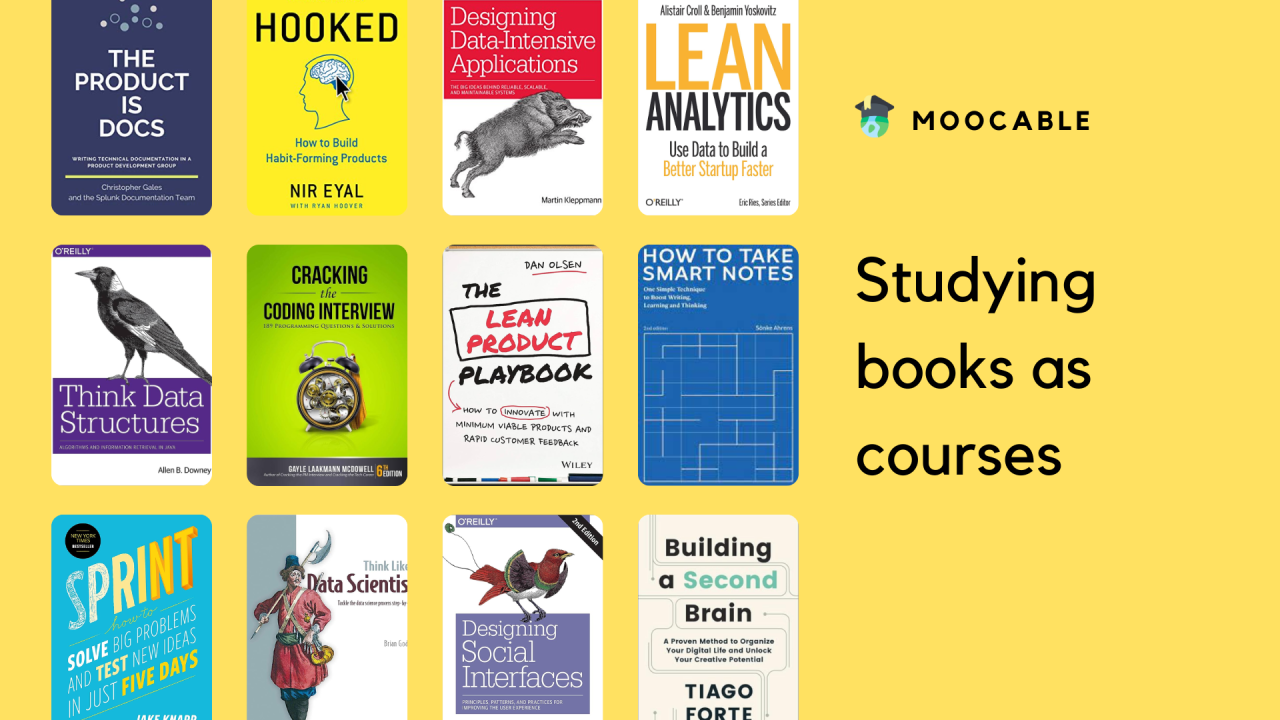
October 7, 2023
Imagine studying a book like an online course: you have weekly goals, assignments to submit, an online group to discuss doubts with other learners, and you receive feedback on your submissions. While most EdTech players (content creators and companies) focus on building new video-based courses, studying books as an online course is an untapped opportunity.
In some cases, online courses are better than books (for example programming). This is because learners get to practice their coding skills immediately after a chapter or module. They learn faster when they get to apply their skills.
This, of course, does not eliminate books as the first resource. Some people enjoy reading more than any other learning method. This article isn't about Books vs Courses, but rather, how we can apply some of the best parts of an online course to studying books.

Let’s say you are reading the book “The Lean Product Playbook" by Dan Olsen. You finish reading the entire book and find it to be a great resource on Product Design and Entrepreneurship.
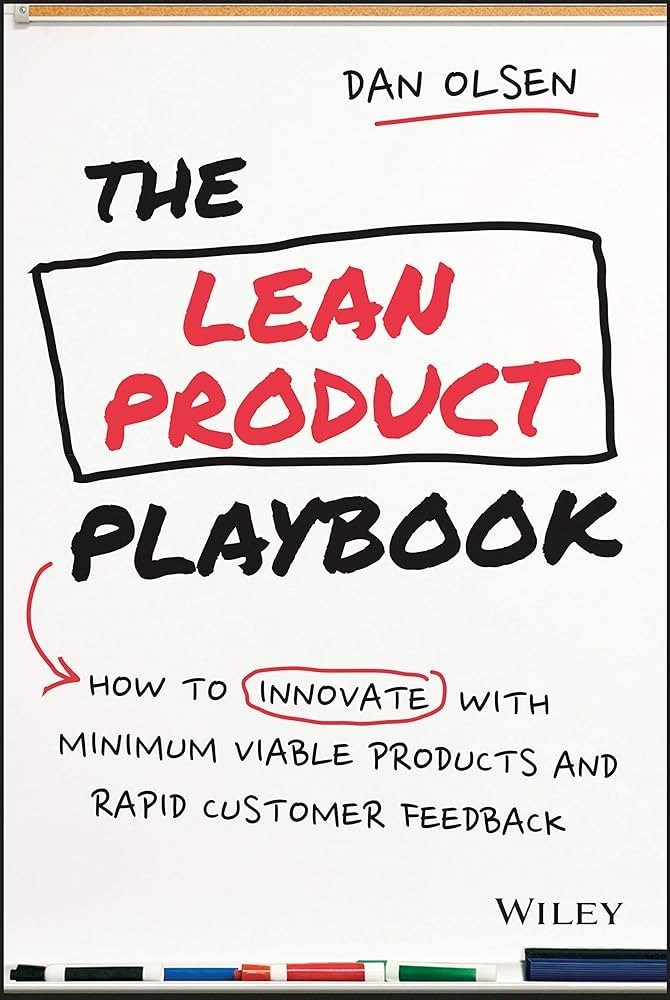
At most, you might bookmark certain sections of the book for reference. But, it’s very difficult to apply what you’ve learned from a book in real life. Here’s why:
• Books lack a task structure. Unlike online courses, books lack task-structure. There weren’t clear goals set out for you (Complete Chapters 1-2 in Week 1, Chapter 3 in Week 2, and so on…)
• Traditional books are not interactive. Making a non-fiction subject come alive with just words and the odd picture is challenging.
• It's difficult for a book to offer additional resources such as templates, worksheets, and other downloadable resources. But this is easy to do with an online course.
• It takes a lot of effort to apply what you learn in a book, whereas an online course can deliver more effortless transformations and the application of what's been learned.
• Even if the book gives you activities to help you learn topics, there is never any feedback between the reader and the author; there can be with courses.
• Unlike online courses, you can’t discuss ideas and doubts about the book with someone. You might feel like you’ve learned a lot by reading a book, but you probably didn’t really understand most of it until you put the knowledge into practice. That means doing actual projects. With an online course, there is often more emphasis on doing projects, which helps you learn things more thoroughly. Not that books are bad, but you need to combine book learning with doing projects (like in an online course) to get the most out of it.
Imagine studying the following books as courses:

📕 Think Data Structures by Allen Downey - after each chapter you need to solve relevant DSA problems on LeetCode.
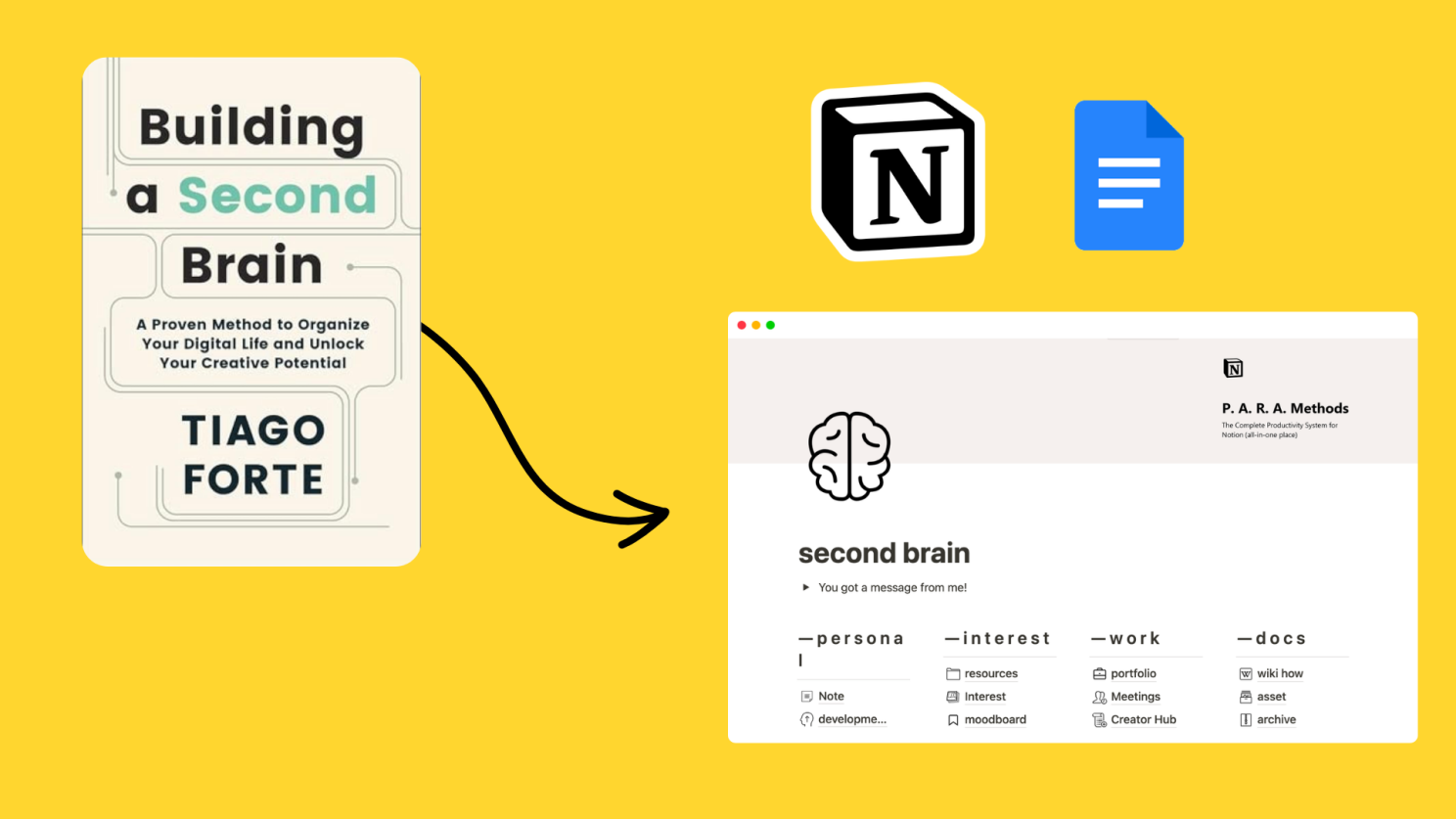
📕 Building a Second Brain by Tiago Forte - where you actually implement the PARA framework using Notion or Google Docs.
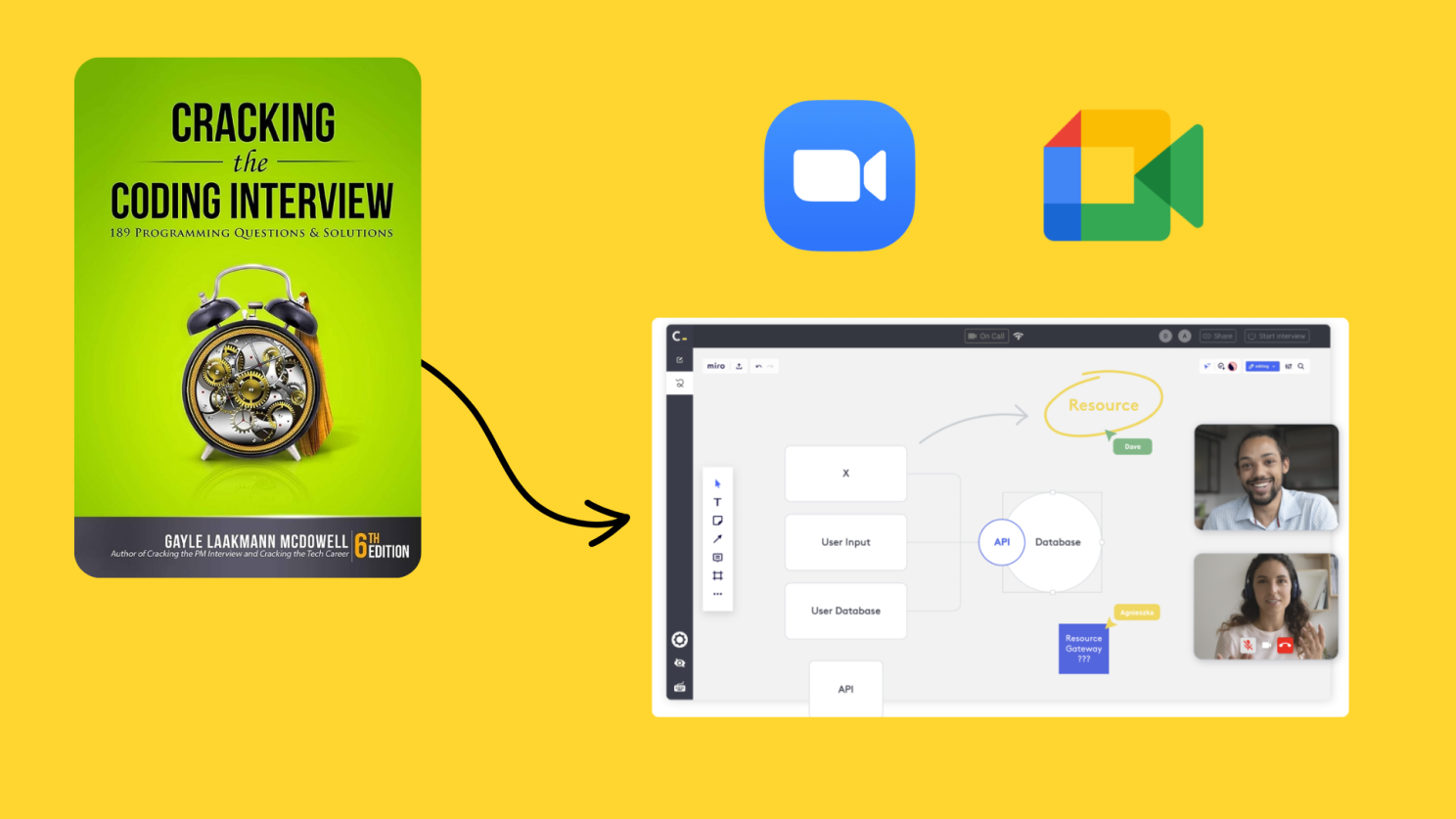
📕 Cracking the Coding Interview by Gayle Mcdowell - you read the book + you get to attend live sessions for mock interviews.
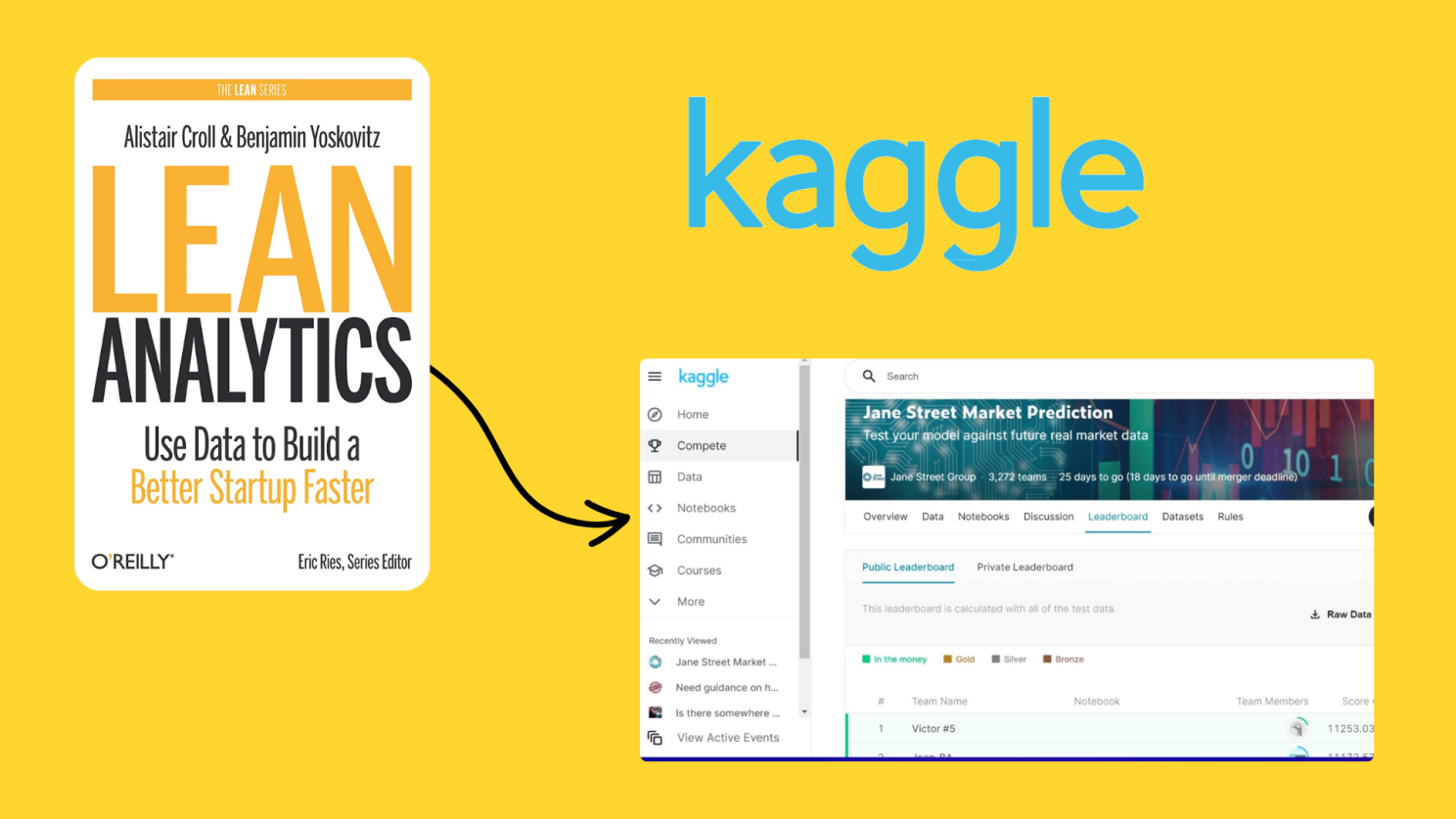
📕 Lean Analytics by Alistair Croll & Benjamin Yoskovitz - apply what you’ve learned by solving real business problems on Kaggle
Sounds great, right?
• Books are an untapped resource
There are literally hundreds of thousands of books published already! Books are written by subject experts - people who’ve spent years working in a domain; it’s true that most books tend to be theoretical, and made for consumption. But, I believe that if we convert the same text into a course, we will receive more value out of a book.
• Better suited for intermediate/advanced learners
Most online courses are aimed at beginners. And that’s great - since most of us are beginner learners. But, as you gain mastery in a subject, it’s very difficult to find relevant courses. Books often provide more in-depth information and analysis than surface-level information. They allow the reader to gain a deeper understanding of the subject matter and to explore it at their own pace. In addition, there are far more books available on niche topics, than online courses.
For example: You can find 100s of online courses on a beginner Python course. But, it’s very difficult to find an online course on pytest - a Python testing framework. Intermediate/Advanced learners look for depth and resources on very specific topics. Books fulfill those criteria way better than online courses.
• Authenticity: A book (traditionally published) has its content verified by other experts and has reputable sources—This may not seem that important at first glance, but consider this: how many times have you actually checked the veracity of online resources? If you’re anything like me, the answer is probably close to never. This should be a concern since it has become increasingly easier to forge and twist information. In other cases, it may just be a long chain of misinterpretations and the same material being rephrased which eventually leads to poor or incomplete information. Every book published by any respectable organization will have to pass various checks before hitting the shelves, so in most cases the information can be trusted, barring the subjectiveness of the author. Moreover, the authors, editors, and reviewers of tech books are usually respected academics or industry leaders, meaning that the material itself will usually be of a superior quality to most online resources.
On Moocable, our app converts books into cohort-based courses. In this article, I’ll share a few simple ways anyone can convert a book into an online course. Note: Here, I’m talking about converting books into cohort-based courses.

• Create a task structure: In order to study the book as a cohort course, you need to have a start date and an end date.

Next, you need to clearly define weekly goals for the book. For example:
📕 Complete Chapter 1 in Week 1
📕 Complete Chapters 2 & 3 in Week 2
and so on…
In addition, you need to set deadlines each week. It’s useful if you have a dashboard/forum/website where learners can clearly see the schedule of the course.
Finally, it’s really useful if you can send reminders to each learner about each week’s goals and upcoming deadlines. Moocable automatically sends reminder emails/notifications. But, you can manually share a reminder message via text.
• Complementary Assignments: You need to create assignments that actually complement the book. Ideally, you should create weekly assignments - learners can read a chapter and start working on the respective assignment.

Creating assignments is a challenging task, because:
- You need to have prior knowledge about the book & and the subject.
- You require technical knowledge of other apps/media. For example, if you creating assignments on a UI UX book, you need to learn how to use Figma to create assignments.
- Creating assignments for a book/course falls under Instructional design. This is a vast topic - you need to learn about pedagogical designs, basic psychological theories of learning, Educational psychology, and more…
- This can be really time-consuming.
Creating assignments is probably the most challenging task in our book-course conversion. But - if done right - it also has the highest return on learning outcomes.
• Progress, Schedule, and Deadlines: Just like a traditional online course, we need to create a sense of progress + and schedule + and have deadlines in our course. An LMS (Learning management system) normally has these features, but it costs money.
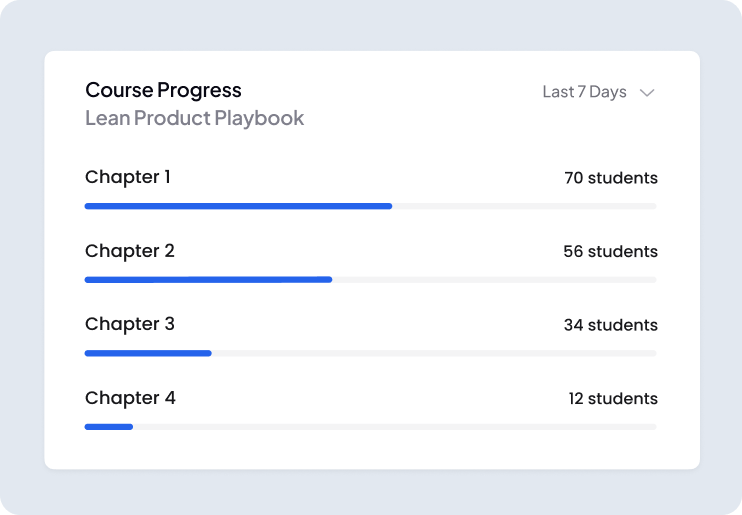
Progress trackers create a clear path to completion. Studies show that offering learners a clear idea of how many steps it takes to get to the final target can significantly reduce abandonment. You can use an LMS, or create custom progress trackers.
Lastly, you can manually create a schedule, and share deadlines with your group mates, over chat. The most important thing is that learners in the group have a shared understanding about the (book) course schedule, and deadlines.
• Feedback: One of the most important features of a course is feedback. A good course offers an effective feedback system - learners receive feedback on their progress + and on their assignments.
In this case, I'm talking about two types of feedback:
1. UX feedback
2. Learning feedback
UX feedback refers to any element of your app that notifies users of an action being committed. UX feedback deserves its own article. For now, let's focus on learning feedback.
Learning feedback essentially means that the learner should receive feedback on their assignment. They can receive feedback from an instructor, or from their peers. If I submit an assignment, I need to receive feedback from others to understand where I went wrong and learn about my peers' answers.

So, when you conduct the study group on the book, you need to decide which type of feedback are you conducting - peer or instructor. Plus, you'll need an app to share feedback. You can use chatting apps (Discord, Whatsapp), File sharing apps (Google Docs), or an LMS.
• Social Community: In order to build a successful cohort-based course, you need to ensure that learners get to socialize with each other.
There are two ways of communication: synchronous and asynchronous. Try experimenting with both.
Synchronous communication: live chat & and video calls.
Asynchronous communication: discussion forums, group chat (not live), comments, forms, emoji reaction feedback.
Video calls are the best way to engage your study group. It makes everyone highly accountable and learners get a chance to talk to each other. But, arranging group video calls is challenging - especially if learners are living in different time zones and have lots of other responsibilities. You can use Google Meet or Zoom to arrange video calls.
You can use chatting apps (Whatsapp, Discord) for sending text messages.
Remember: Don't obsess about the technology. I have conducted study groups using just a WhatsApp group. The most important factors are:
• Selecting the right book
• Creating complementary assignments/exercises
• Schedule, deadline, and reminders
• Feedback on assignments.